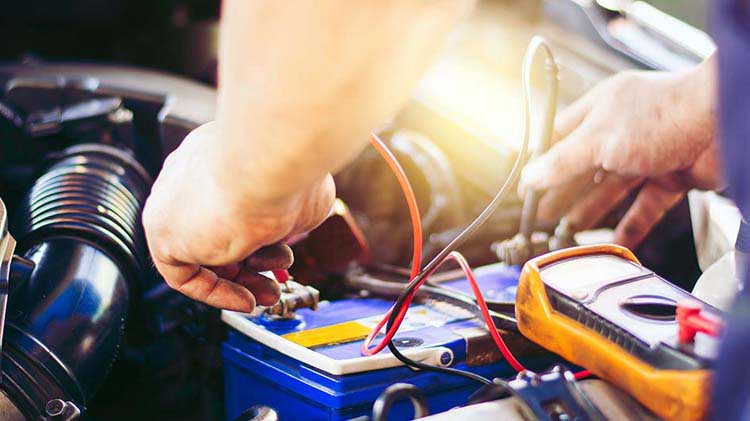Comparing the Performance of LiFePO4 Batteries: A Comprehensive Chart
With the increasing demand for energy storage solutions, lithium iron phosphate (LiFePO4) batteries have emerged as a popular choice due to their high energy density, long cycle life, and inherent safety features. However, with various manufacturers and suppliers offering LiFePO4 batteries with different specifications and performance metrics, it can be challenging to compare and choose the right battery for a specific application.
To help make an informed decision, we have compiled a comprehensive chart that compares the performance of various LiFePO4 batteries based on key parameters such as capacity, voltage, cycle life, and operating temperature range. The chart includes batteries from well-known manufacturers such as Winston, CALB, and Sinopoly, as well as newer entrants in the market.
Capacity is one of the most critical parameters to consider when selecting a LiFePO4 battery, as it determines the amount of energy the battery can store. Our chart lists the nominal capacity of each battery, which is typically measured in ampere-hours (Ah). We have also included the energy density of each battery, which is the amount of energy stored per unit of volume or weight. The energy density is a crucial factor for applications where weight and size are critical, such as in electric vehicles and portable electronics.
Another critical parameter to consider is voltage, as it determines the voltage range that the battery can discharge at. Our chart lists the nominal voltage of each battery, which is typically 3.2 or 3.3 volts per cell. We have also included the maximum charging voltage and the discharge cut-off voltage, which are essential for ensuring safe and efficient operation of the battery.
Cycle life is another critical parameter to consider, as it determines the number of charge and discharge cycles a battery can withstand before it degrades significantly. Our chart lists the estimated cycle life of each battery, which is typically measured in thousands of cycles. We have also included the depth of discharge (DoD) for each battery, which is the percentage of the battery’s capacity that can be discharged before recharging it. A higher DoD means that more energy can be extracted from the battery before recharging it, but it also reduces the battery’s cycle life.

Operating temperature range is also an important parameter to consider, especially for applications where the battery is exposed to extreme temperatures. Our chart lists the recommended operating temperature range for each battery, which is typically between -20°C and 60°C. We have also included the temperature coefficient for each battery, which is the rate at which the battery’s capacity and voltage change with temperature. A battery with a low temperature coefficient will perform better in extreme temperatures than a battery with a high coefficient.
In conclusion, our comprehensive chart provides a useful tool for comparing the performance of various LiFePO4 batteries based on critical parameters such as capacity, voltage, cycle life, and operating temperature range. By using this chart, you can make an informed decision and select the right battery for your specific application.
-
 The demand for renewable energy sources has increased significantly in recent years, and it has led to an increase in the production of lithium-ion batteries. Among these batteries, the LiFePO4 battery is gaining popularity due to its long cycle life, high safety, and environmental friendliness. In this article, we will discuss the price of a 100Ah LiFePO4 battery. The...Read more
The demand for renewable energy sources has increased significantly in recent years, and it has led to an increase in the production of lithium-ion batteries. Among these batteries, the LiFePO4 battery is gaining popularity due to its long cycle life, high safety, and environmental friendliness. In this article, we will discuss the price of a 100Ah LiFePO4 battery. The...Read more -
 Industrial battery chargers play a crucial role in the functioning of various industries worldwide. These powerful devices are designed to charge and maintain the batteries that power essential equipment and machinery in sectors such as manufacturing, logistics, and transportation. Understanding the importance and capabilities of industrial battery chargers is essential for businesses to ensure uninterrupted operations and maximize productivity. ...Read more
Industrial battery chargers play a crucial role in the functioning of various industries worldwide. These powerful devices are designed to charge and maintain the batteries that power essential equipment and machinery in sectors such as manufacturing, logistics, and transportation. Understanding the importance and capabilities of industrial battery chargers is essential for businesses to ensure uninterrupted operations and maximize productivity. ...Read more -
 The world of motorcycles has evolved significantly over the years, and with the advent of new technology, it has become essential for bikers to have a reliable and durable battery that can provide optimal power and performance. That's where the LiFePO4 motorcycle battery comes in. LiFePO4 (Lithium Iron Phosphate) is a type of lithium-ion battery that is known for...Read more
The world of motorcycles has evolved significantly over the years, and with the advent of new technology, it has become essential for bikers to have a reliable and durable battery that can provide optimal power and performance. That's where the LiFePO4 motorcycle battery comes in. LiFePO4 (Lithium Iron Phosphate) is a type of lithium-ion battery that is known for...Read more -
 The demand for clean and sustainable energy sources has been on the rise in recent years due to growing concerns about climate change and the need to reduce greenhouse gas emissions. As a result, the development of efficient and reliable energy storage systems has become a key focus of research and innovation. Among the various technologies available, lithium batteries have...Read more
The demand for clean and sustainable energy sources has been on the rise in recent years due to growing concerns about climate change and the need to reduce greenhouse gas emissions. As a result, the development of efficient and reliable energy storage systems has become a key focus of research and innovation. Among the various technologies available, lithium batteries have...Read more -
 Have you ever found yourself in the middle of nowhere, surrounded by nature's beauty, but with no power source to charge your electronic devices? If you love outdoor adventures like camping, hiking, or road trips, then a reliable power source is essential to keep you connected and powered up. That's where the Lithium Camper Battery comes in - the ultimate...Read more
Have you ever found yourself in the middle of nowhere, surrounded by nature's beauty, but with no power source to charge your electronic devices? If you love outdoor adventures like camping, hiking, or road trips, then a reliable power source is essential to keep you connected and powered up. That's where the Lithium Camper Battery comes in - the ultimate...Read more -
 When it comes to exploring the great outdoors and embarking on exciting camping adventures, having a reliable and efficient power source is crucial. That's where the lithium camper battery comes into play. This innovative technology has revolutionized the way campers and outdoor enthusiasts power their adventures, offering numerous advantages over traditional batteries. One of the key features of a...Read more
When it comes to exploring the great outdoors and embarking on exciting camping adventures, having a reliable and efficient power source is crucial. That's where the lithium camper battery comes into play. This innovative technology has revolutionized the way campers and outdoor enthusiasts power their adventures, offering numerous advantages over traditional batteries. One of the key features of a...Read more -
 Car batteries are the lifeblood of modern vehicles. They provide the energy needed to start the engine, power the lights, and keep the electronics running. However, even the best batteries can fail at the most inconvenient times. Dead batteries can leave you stranded, waiting for a tow truck or a jump start from a helpful stranger. That's where emergency starter...Read more
Car batteries are the lifeblood of modern vehicles. They provide the energy needed to start the engine, power the lights, and keep the electronics running. However, even the best batteries can fail at the most inconvenient times. Dead batteries can leave you stranded, waiting for a tow truck or a jump start from a helpful stranger. That's where emergency starter...Read more

